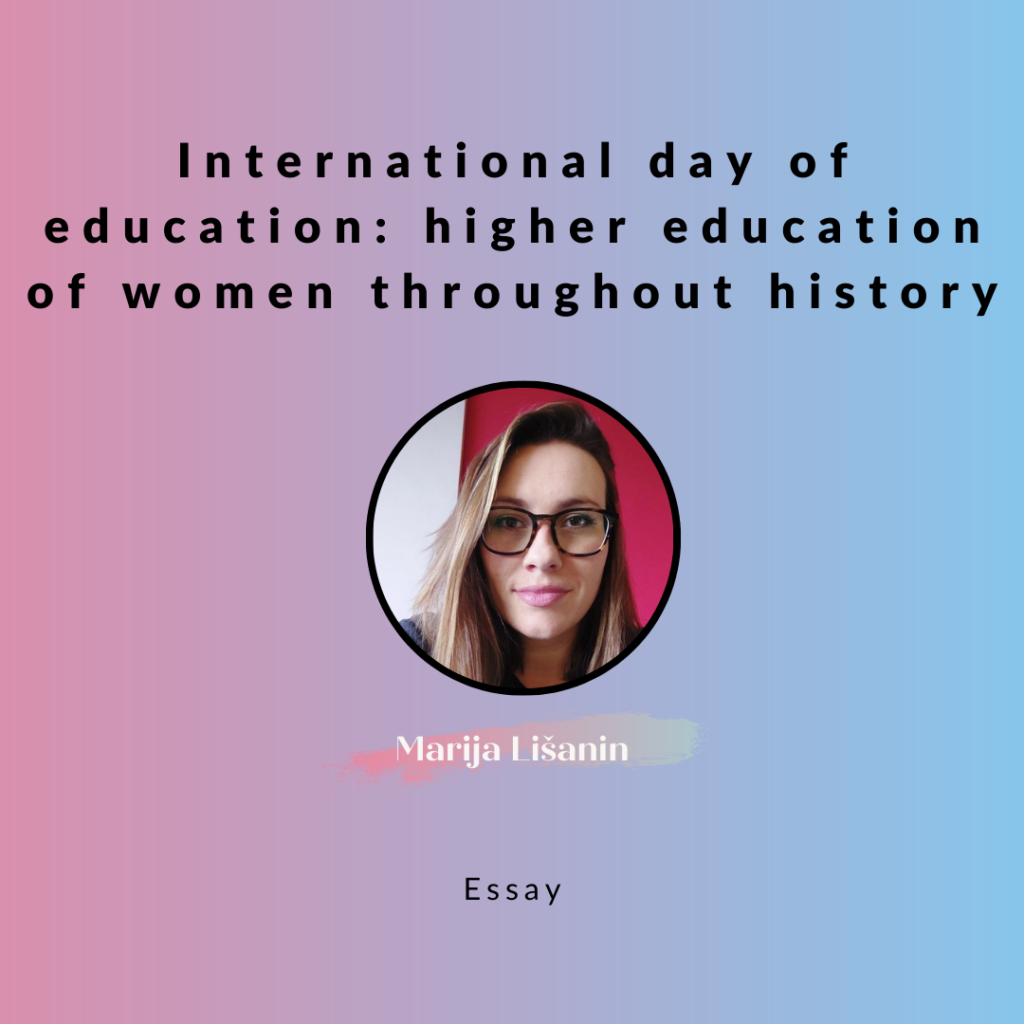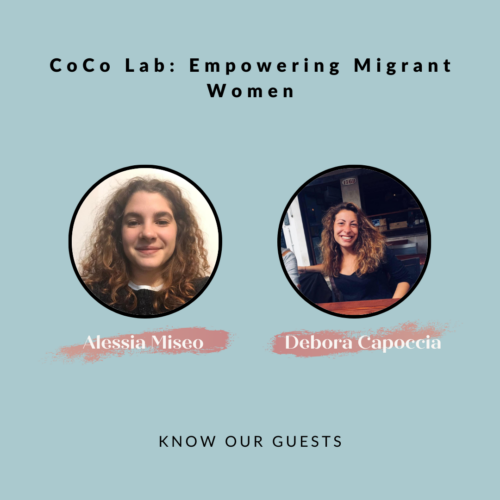
How privileged must I be today with such a possibility to possess a master’s degree, compared to my mother and my grandmothers, who weren’t so educated? What was education back then and how valuable is education today for us? What do we know about the education of women throughout history?
The United Nations General Assembly proclaimed 24 January as the International Day of Education in celebration of the role of education in peace and development. Without inclusive and equitable quality education and lifelong opportunities for all, countries will not succeed in achieving gender equality and breaking the cycle of poverty that is leaving millions of children, youth, and adults behind.
Education is a human right, a public good, and public responsibility. Every child has a right to learn and get a good quality education, regardless of gender, where they live, or their circumstances. Educated girls can make informed choices from a far better range of options. With an education, girls will understand their rights, have a greater sense of what is needed to support health and well-being, and they will have greater opportunities to be employed in a fulfilling way and achieve their full potential.
Historical review: was education exclusive?
In the 11th century, modern European universities began to be founded, but they were only available to rich men. Women could receive higher education only as nuns in monasteries. The women who did manage to attend universities came from rich and influential families and had the support and mentorship of men. Who was one of the first educated women?
Anna Maria van Schuman (1607.-1678.) was the first woman to attend a university in the Netherlands, but during lectures, she had to sit behind a table so that her presence would not disturb the male students.
Elena Piscopia (1646.-1684.) at the University of Padua was forbidden by Gregorio Cardinal Barbarigo, the bishop of Padua, to defend her doctorate in theology, but soon after he allowed her to defend her doctorate in philosophy. She became the first woman with a doctorate in the new century.
Elizabeth Blackwell (1821.-1910.) became the first female doctor in the USA, but 10 faculties rejected her, and it was suggested that she mask herself as a man to study, which she did not agree to.
Movements for women’s access to higher education in Europe and the USA grew stronger in the 19th century, and some universities began to admit female students. Women had fought for the opening of women’s educational programs and faculties, but they still did not receive diplomas and were treated as less capable and less valuable. In 1833, the first college that accepted both men and women was founded in America, but for the first seven years women were awarded “women’s degrees”. In 1878, the University of London became the first in the UK to have the same official terms and conditions for both male and female students, and in 1920, Oxford began awarding degrees to women. However, in the United States, prestigious Ivy League universities only started to admit female students in 1960/1970 and with opposition from former students who have threatened to end donations.
The importance of education for women and the barriers
Girls and young women in many parts of the world miss out on school every day. Around 61 million girls are out of school, according to UNICEF (in 2016, 32 million girls of primary school age and 29 million of lower secondary school age). Often, girls are marginalized and are out of school simply because they are girls and it is not the cultural norm. Their chances of getting a quality education are even smaller if they come from a poor family, live in a rural area, or have a disability. Girls are four times more likely to be out of school than boys from the same background. The poorest girls also have the least likelihood of completing primary school. There are often legal, religious, and traditional practices that discriminate against girls having the chance to get an education.
Although universities in the 21st century have more female students than male students, they employ and promote fewer female professors and researchers than male ones. More men’s academic works are published than women’s. Despite that, studies show that from 1995 to 2018, the number of women in undergraduate studies tripled, and in 74 percent of the countries surveyed, they outnumbered men. However, even though women are more educated, in most industries men are still better paid and in better positions.
The barriers to female education include poverty and child labor, gender stereotypes (division into male/female areas and jobs), and social pressure on women to dedicate themselves to the family (at the same time, men are encouraged to build a career), gender-based violence in the family and education, early and forced marriages, early pregnancies and the inaccessibility of contraception, menstrual poverty, prioritizing the education of men over the education of women and many more.
Education is very important for women because gender inequalities are decreasing, which means more women in leadership positions. Also, a better education means economic independence for women. Education can reduce gender-based violence and make more sustainable families. Education for women provides more choices and life opportunities.
by Marija Lišanin
Resources
https://www.unesco.org/en/articles/international-day-education
https://www.britannica.com/topic/Women-in-Science-2100321
https://www.britannica.com/biography/Elena-Cornaro
https://discovery.ucl.ac.uk/id/eprint/1318005/
https://todayslearner.cengage.com/honoring-the-women-pioneers-who-made-history-in-higher-ed/
https://www.history.ox.ac.uk/article/a-short-history-of-womens-education-at-the-univesity-of-oxford
https://www.bestcolleges.com/blog/history-of-ivy-league/



